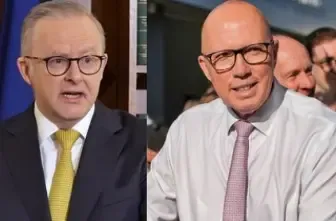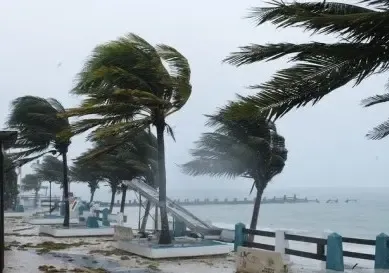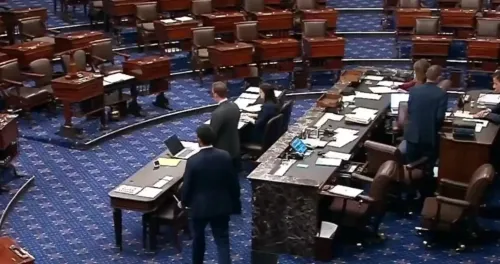Candidates for Prime Minister in Australia Officially Unveil Their Election Campaigns

Synopsis
Key Takeaways
- Incumbent PM Anthony Albanese pledges 10 billion AUD for first home buyers.
- Coalition leader Peter Dutton promises a one-time tax cut of 1,200 AUD.
- Both parties emphasize housing and taxation in their campaigns.
- Election day is 20 days away, with early voting starting on April 22.
- Campaign launches mark a shift away from taxpayer funding.
Canberra, April 13 (NationPress) The candidates vying for the role of Prime Minister in Australia have officially kicked off their election campaigns, unveiling ambitious multi-billion-dollar housing and tax policies.
Incumbent Prime Minister Anthony Albanese commenced the campaign for his governing Labor Party in Western Australia on Sunday, asserting his commitment to use a second term to "continue constructing a future that reflects our values and is deserving of our populace".
Albanese revealed that should the Labor Party be re-elected, they would allocate 10 billion Australian dollars (approximately $6.2 billion) to create 100,000 new homes, specifically for first-time buyers. He also introduced a strategy allowing Australians to buy their first home with merely a five percent deposit, as reported by Xinhua news agency.
In addition, he pledged that starting from the fiscal year 2026-27, millions of Australians would have the opportunity to claim an instant 1,000 AUD (around $628.5) tax deduction for work-related expenses without needing to submit receipts.
Peter Dutton, the alternative Prime Minister of Australia, launched his opposition Coalition campaign in western Sydney earlier on the same day, where he also unveiled housing and taxation policies.
Dutton indicated that a Coalition government would provide a one-time tax cut worth 1,200 AUD (about $754.3) to millions of middle-income earners in 2026, costing 10 billion AUD.
Moreover, he announced that for five years, the Coalition would enable first-time buyers to deduct the interest paid on the first 650,000 AUD (approximately $408,588.9) of their mortgage from their taxable earnings, a measure that the party estimates would save the average family 11,000 AUD (around $6,914.5) annually.
The locations chosen for each party's campaign launch on Sunday serve as a vital indicator of their perceived best approach to securing a majority of the 150 seats that will constitute the lower house in the 48th Parliament.
Labor's success in the 2022 election, which concluded their nine-year opposition period, was predominantly attributed to their achievements in Western Australia.
Among the ten seats across Australia that Labor won from the Coalition in 2022, four were located in WA.
As the Coalition approaches the election holding 53 lower house seats, they require gains nationwide to form a government, making Labor's retention of seats in WA a crucial step toward re-election.
Besides WA, Dutton and the Coalition have focused on western Sydney as a region where they could significantly improve their standing against Labor.
This traditionally working-class area has historically supported Labor, with the current governing party holding 10 of its 14 seats, but the opposition has identified it as a place where their cost-of-living, housing, and immigration policies might resonate with voters.
The commencement of both major parties' campaigns occurs 20 days prior to election day and nine days before early voting begins on April 22.
According to Australian law, the formal launch of a political party's federal election campaign signifies that the party can no longer utilize taxpayer funding for campaign expenses, including travel arrangements for leaders and staff salaries, and must fully cover their costs thereafter.









